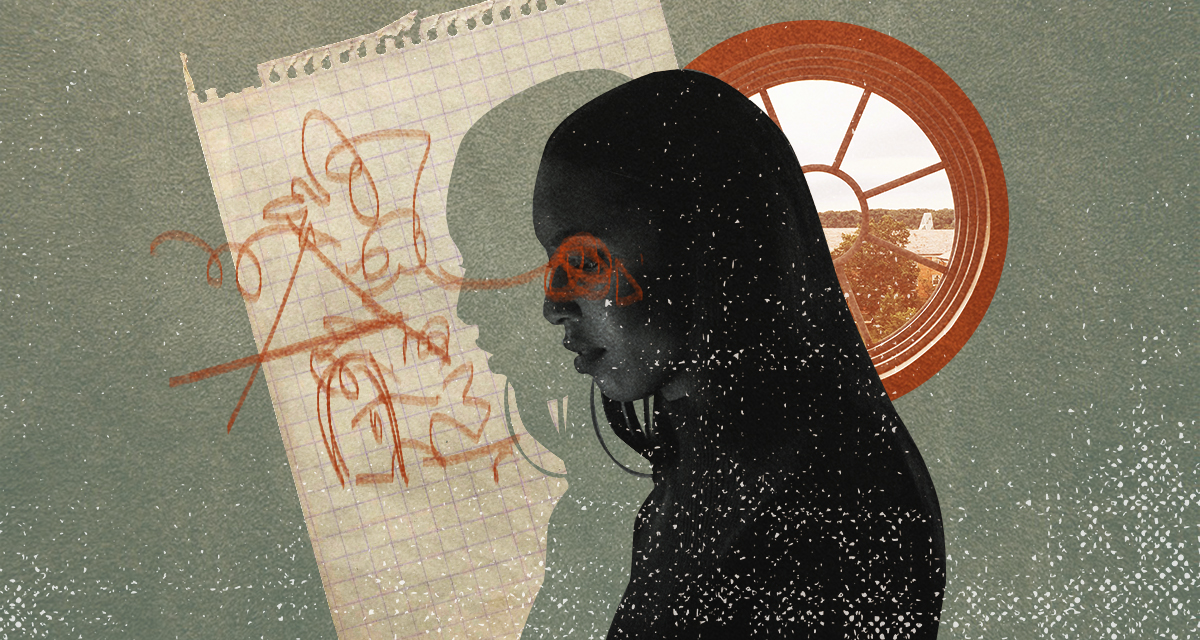
Being an only child and not having a bunch of playmates around pushed me to rely on my imagination as a kid. When others were building kites and skipping on chalk-colored squares playing hopscotch, I drew on my walls, cooked for my dolls, and wrote made-up stories. I grew up enjoying the simple pleasures of staying home and getting lost in my pool of thoughts rather than taking part in the world outside. I soon developed hostility towards big crowds and socializing. As a result, when the situation called for staying indoors and most people detested the idea, I took an opposing standpoint—I loved the isolation.
It has been eight months since The Great Pause started caused by the COVID-19 pandemic and most people have been battling the loneliness epidemic while the ones with years of expertise in handling isolation are feeling more liberated than ever. They are of course people who are extreme homebodies or introverts as many would like to call them.
According to the early psychologist Carl Jung, introverts prefer minimally stimulating environments and are people who need time alone to recharge. Even at a young age, I already associated myself as one. Unlike people who constantly crave trips and talks I would rather find comfort in staying home huddled in the cozy warmth of the bed and the company of a good book.
When the world was brought to a halt, the daily routine stopped and for most people there’s suddenly too little to do, but I thought otherwise.
Being stuck at home meant not seeing friends and loved ones, but on the other hand came loads of other opportunities for focusing on myself. I can utilize my alone time by harnessing my creative skills in writing, craft making, and even in cooking or baking without needing any form of social stimulation to feel satisfied. Spending hours in a board game or an entire day finishing a book or a series now allows me to dwell more on my introspection and imagination. Having the time to catch up on my reading, to tick off films in my to-watch list, to revisit drafts of poems and short stories that I never got to finish is a welcome change from the usual crammed school schedule.
“It is important to filter out the noises, actions and emotions of others and free ourselves of certain influences that could cripple originality.”
Friedrich Nietzsche supported the idea that time alone is beneficial for both mental health and creativity. According to him, self-isolation is the only means by which we can know ourselves and eliminate the social pressures that alter how we think and behave. As manifested by his personal experience as a solitary fellow, he was able to pursue all the possibilities of the mind, of reason and insight, and had deeper knowledge of himself through solitude. When we isolate ourselves, we reestablish control over our environment which leads to an enhanced sense of well-being. This is because when we’re constantly influenced by the opinions and actions of the people around us, we can lose sight of our own goals and values. It is important to filter out the noises, actions and emotions of others and free ourselves of certain influences that could cripple originality.
An environment where loud, opinionated, social, and competitive people exist is where introverts can start to lose grasp of their creativity. In school, I also wasn’t one to raise my hand when the teacher asks for volunteers even though I have a lot in mind. An author, speaker and the Chief Revolutionary of the growing movement championing introversion, Susan Cain in her TED talk “The Power of Introverts in a World That Can’t Stop Talking” pointed to the fact that schools are designed for extroverts. Students are constantly pushed to work in groups and to perform in front of an audience. When both types are evaluated against the same criteria and those who excel at being outspoken are more often considered to be well-rounded, extroverted individuals are seen to be much preferable and useful in society even though only the difference of circumstances in the given work space keeps these two types of personalities from delivering the same quality of outputs.
Introverted students may even perform better than their counterparts if placed in a proper environment that plays to their strengths. With silence and stress-free environments, people who struggle in social settings are able to produce better and more creative outcomes. Nikola Tesla, an inventor, engineer and also an introvert once stated that seclusion and uninterrupted silence is what contributed to a sharper and keener mind.
“ At the end of the day, no matter what our personality is, we all agree that we want this pandemic to be over. Besides, it would be better if we think of isolation as a choice rather than an obligation.”
I can say that growing up from a small family was the biggest factor that contributed to my introverted personality and other factors are brought by my fondness for activities that demand peace and quiet. However, I cannot always be the asocial person that I am for there are instances which require me to step out of my bubble. Joining the school publication and being a journalist demands me to be aware of what’s going on outside and to be in touch with people’s lives.
The same goes for the extroverted people out there. At some point, they will have to deal with the uncomfortable quiet of being alone. This is where balance plays its part. Some instances will allow us to flick between sides depending on our mood, situation, and the people surrounding us. In order to adapt, we must also embody the traits of deep thinkers as well as team players.
Sometimes we need to blur the line between introversion and extraversion and step onto the opposite side to be able to understand the strengths and advantages of our counterparts. In that way, we would learn how to push ourselves to become versatile when needed. Introverts can’t always attend meetings through a webcam or conduct job interviews at home and extroverts aren’t always in fun, highly stimulating environments.
As much as I am enjoying these months of isolation, I am also acknowledging and empathizing with people who are struggling to survive during these times. At the end of the day, no matter what our personality is, we all agree that we want this pandemic to be over. Besides, it would be better if we think of isolation as a choice rather than an obligation. Since we have little to no choice about the eight month long lockdown, it’s best if we could all learn to embrace the gift of solitude and see this time as an opportunity to rekindle long forgotten passions, to invest in self-care, and to get to know oneself better.
The process of enjoying isolation is more than just learning how to see the glass half full. For both introverts and extroverts, mastering the art of surviving long periods of isolation requires being comfortable in one’s own company and thoughts.
